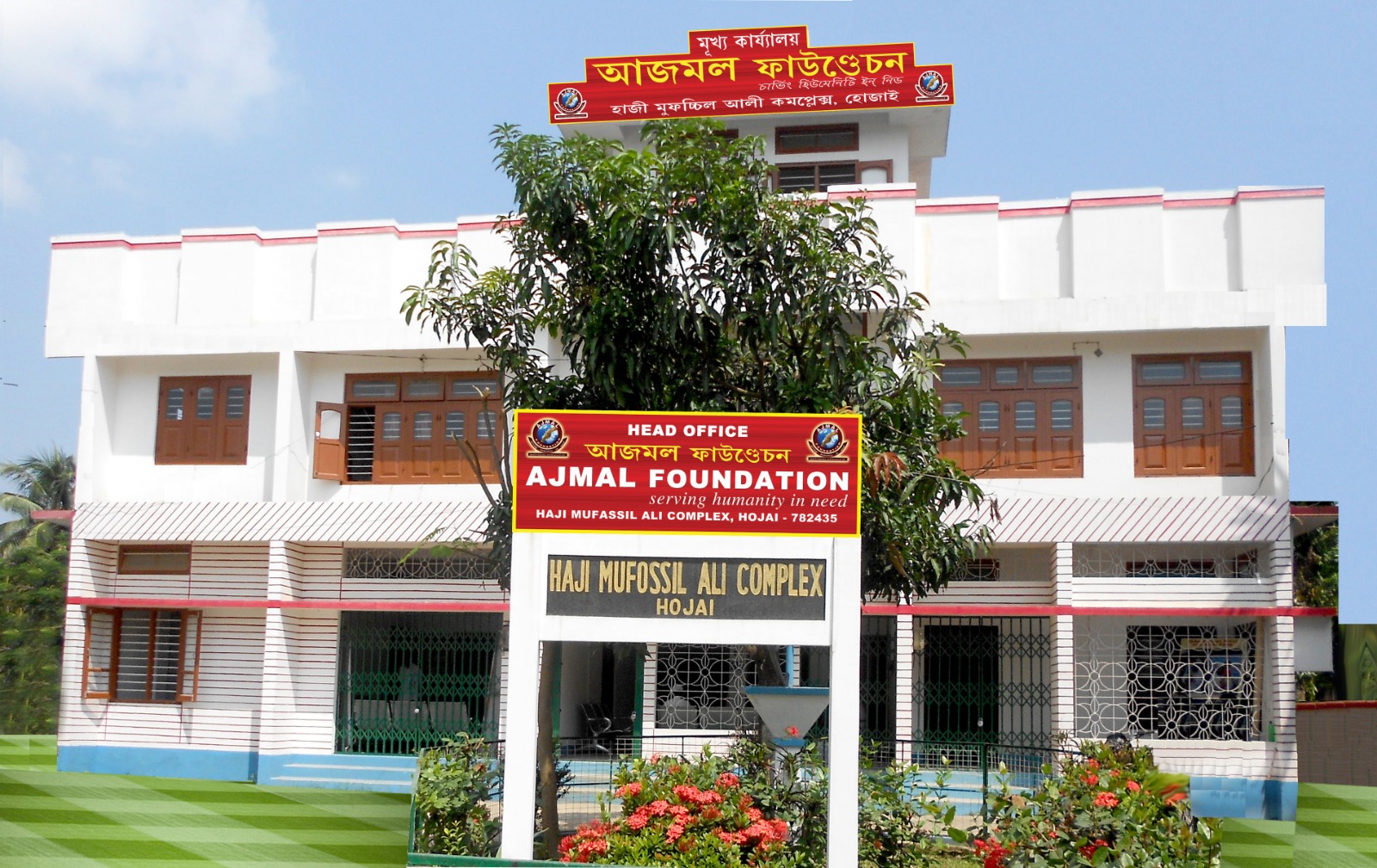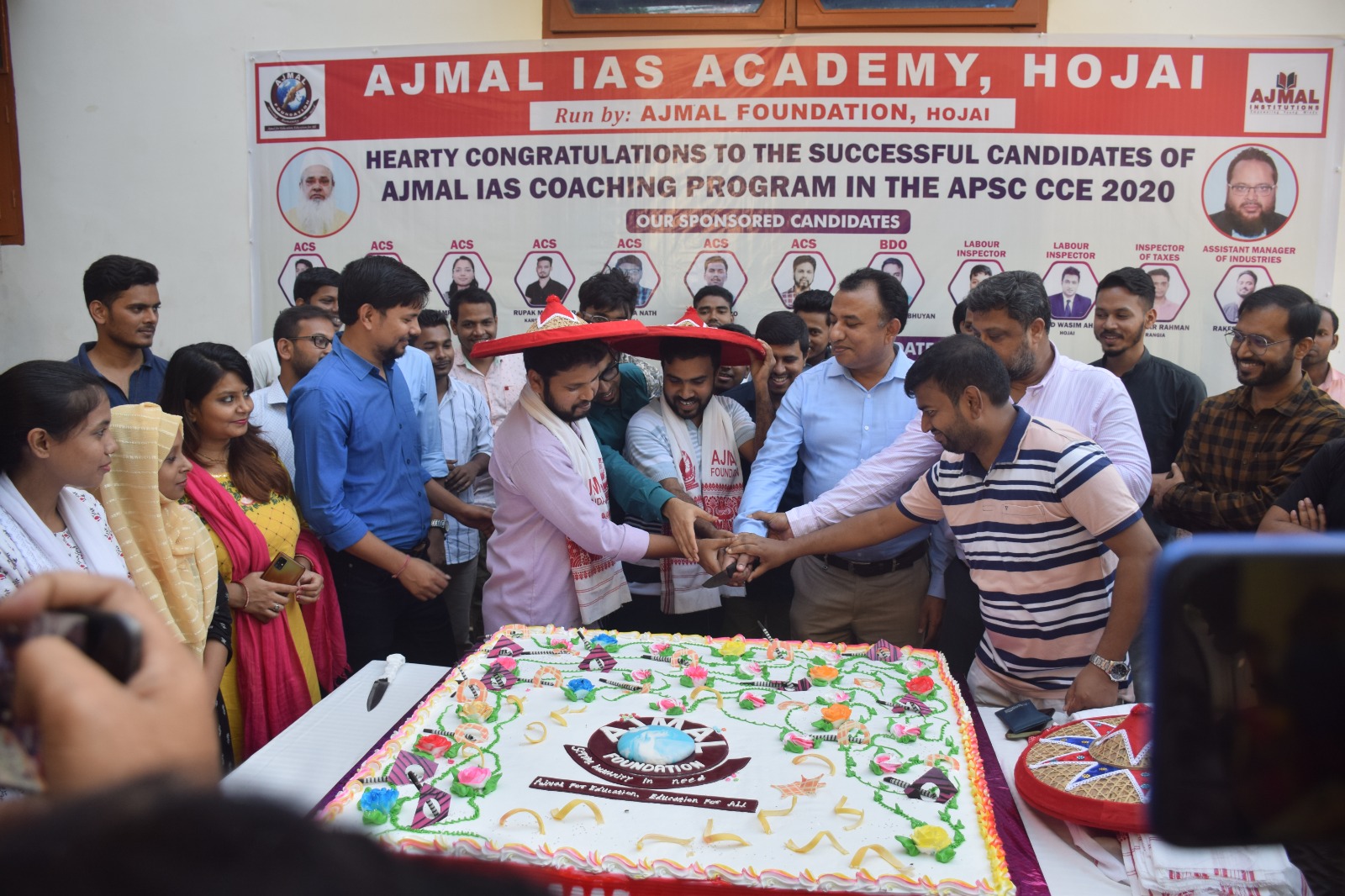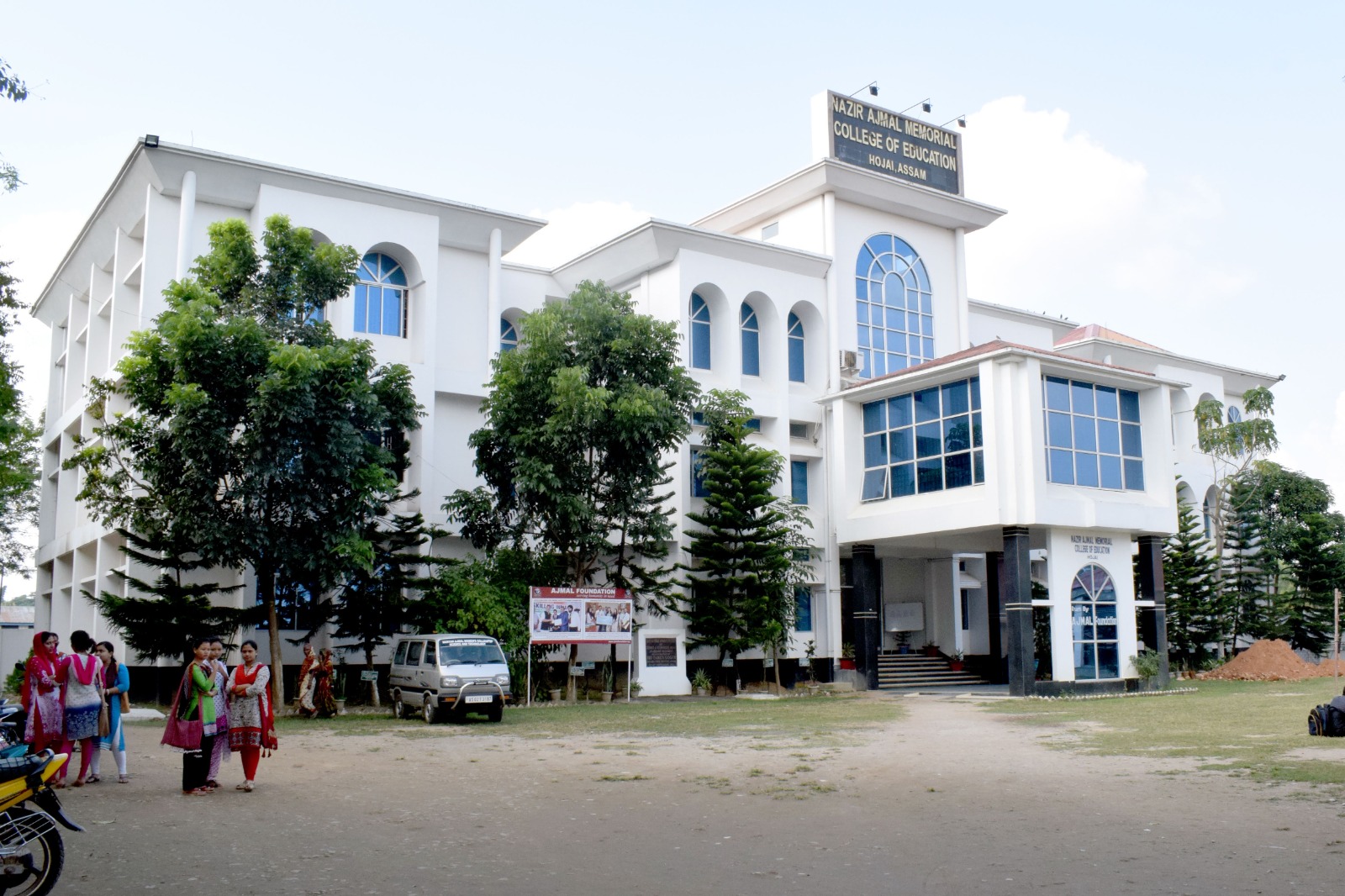
Guwahati: The Ajmal Foundation spread across different locations in Assam, has established several institutions which operate as per the prescribed government guidelines. The foundation, with hospitals set up in 80 bighas of land, 'Super 40' courses for bright "marginalized" students, and presence in 60 different locations has turned into a transformative force in Assam, making significant strides in eradicating social disparities through education. In an exclusive interview with Business North East, Ajmal Foundation director Khasrul Islam shared insights about the foundation's current projects, achievements, and plans.

Business North East: Khasrul Islam, could you provide an overview of Ajmal Foundation's ongoing projects?
Khasrul Islam: Ajmal Foundation, a registered public charitable trust, was established in 2005 at Hojai by Badaruddin Ajmal and Sirajuddin Ajmal with a vision to serve humanity and address social disparities with a special focus on empowering rural communities through education. We are managing 34 educational institutes, including Maryam Ajmal Women’s College of Science and Technology (Degree) and Maryam Ajmal Women’s College of Science and Technology (HS) at Hojai for women empowerment. The Nazir Ajmal Memorial College of Education and Ajmal Law College are our other large initiatives. Most of our institutions are situated in Hojai, while the rest are located in the Nagaon, Dhubri, Darrang, and Kokrajhar districts of Assam.
The foundation has also launched a flagship program: Super 40. We sponsor 40 students from marginalized sections for higher education, particularly in medical and engineering studies. The brainchild of Sirajjudin Ajmal since its inception in 2016, Super 40 has seen over 850 students enter medical colleges and over 100 pursue engineering degrees. It started from Hojai and has now reached places like Karimganj, and Dhubri and will soon make its foray into Barpeta district. We have established also established an IAS academy for civil service aspirants.

BNE: Can you share some success stories from the Super 40 program?
Khasrul Islam: Notable success stories include Amar Singh Thapa and Sanjit Biswas. Thapa, despite being from an economically backward background, topped in science, was adopted by the foundation, and sponsored for higher education at BITS Pilani in Rajasthan. Biswas, from a financially backward family, secured admission to IIT Delhi, with his entire education and engineering studies costing around Rs 8 lakhs being borne by the Ajmal Foundation.
BNE: How does the Ajmal Foundation make education accessible in terms of fees and scholarships?
Khasrul Islam: Our motto is to promote meritorious students from underprivileged families. Our founders believe that charity is a division to multiply. However, if someone can afford the facilities, they can pay at their convenience. Fees for integrated programs like medical and engineering start at one lakh rupees from the eighth standard, with an additional Rs 80,000 for food and accommodation. For general studies, fees for junior and senior secondary schools range from Rs 500 to Rs 1500 per month, depending on the socio-economic background. Our trustees believe in the motto of "Ajmal for education and education for all". Scholarships are provided for below-poverty-line (BPL) students covering both education and accommodation, and exemptions of up to 50% are given for SC/STs and tea tribe communities, with scholarships ranging from Rs 5,000 to Rs 80,000.
BNE: How does the Ajmal Foundation ensure inclusivity beyond specific communities?
Khasrul Islam: While the trustees are of the Muslim community, the foundation's vision is to serve humanity. Ajmal Foundation welcomes students from various backgrounds and employs teachers from diverse communities. Despite external perceptions, the foundation is open to all, emphasizing education as the primary focus.
BNE: How is the Ajmal Foundation aligning itself with the National Education Policy (NEP)?
Khasrul Islam: Acknowledging the importance of NEP in the current socio-economic and scientific context, the foundation has been working in alignment with it for the past two years. Plans are underway to establish Maryam Ajmal University, demonstrating the foundation's commitment to evolving with the changing educational landscape.
BNE: As a director, how has been the experience of working with Ajmal Foundation?
Khasrul Islam: Working with Ajmal Foundation provides an inspiring environment where everyone is motivated to work towards the charitable mission of educating all. It has become a shared dream for everyone involved.
BNE: Beyond education, does the Ajmal Foundation engage in profit-making ventures?
Khasrul Islam: While the Ajmal Foundation itself does not pursue profits, the Ajmal group has a venture called Ajmal Perfumes, contributing to the aromatic industry. The new CEO of Ajmal Perfumes, Abdulaah Ajmal brings top perfumers to Hojai and conducts workshops and brainstorming sessions. A program called back to roots is organised every year through which they contribute to humanitarian causes under the foundation's name as a CSR initiative. The foundation benefits from this venture through workshops brainstorming sessions and skill development programs conducted as part of CSR initiatives.
BNE: How does the Ajmal Foundation motivate students, and what co-curricular activities are emphasized?
Khasrul Islam: The foundation aims for quality education to keep students motivated. Co-curricular activities, including sports, entertainment, and academic events, play a significant role. Sports activities, in particular, are actively promoted, with students participating in state-level and district-level games. We have also actively taken part in the "khel maharan", an initiative by the state government.

BNE: With the growing emphasis on entrepreneurship, does the Ajmal Foundation engage in skill development initiatives?
Khasrul Islam: Recognizing the importance of skill development and entrepreneurship, the Ajmal Foundation has initiated livelihood programs, providing platforms for students to pursue entrepreneurial development. With over 1,200 team members across 34 institutions, the foundation is actively contributing to skill development.
BNE: How does the Ajmal Foundation contribute to women's development and engage in CSR activities?
Khasrul Islam: In addition to women-centric institutions, the Ajmal Foundation supports economically backward widows by providing funds for livelihood, such as opening shops or sewing machines. Through its CSR activities, the foundation is involved in primary education, healthcare through Haji Abdul Majid Memorial Hospital & Research Centre (HAMM) trust started by the late Haji Ajmal Ali in 1995, and various skill development initiatives. Markazul Ma'arif, our Vice President looks after primary education with 54 educational institutions along with ITIs and orphanages. In healthcare, we have 'HAMM' trust with four hospitals under it. One is in Hojai with a 350-bed facility and will soon be upgraded to a medical college. We also have facilities in Goalpara, Dhing (Nagaon), and Karimganj.
BNE: Ajmal Foundation has received numerous awards. Can you highlight some of these achievements?
Khasrul Islam: Ajmal Foundation has been recognized for its outstanding contributions to education and livelihood initiatives. In the 9th CSR Summit and Awards 2022, it received a gold in the field of education and a bronze in the field of livelihood. Over the years, the foundation has received several district-level and state-level awards like the Indian CSR Award in the Category of Top Best Skill Development Initiative of the year, 2022, showcasing its commitment to skill development and education. Around 30,000 candidates have been given skill development training and most of them have been placed in reputed companies. HAMM Hospital was also honoured with Ajmal Award for outstanding contribution to health services. Our trustees also became a support system during the COVID pandemic global breakdown by providing them with food and financial funds whichever was possible at convenience, benefitting around 100 daily wage labourers. We have also signed agreements to enhance academic excellence and research & development activities in the field of teacher training and general awareness about different areas and aspects of education and society.
BNE: What are the future plans for the Ajmal Foundation?
Khasrul Islam: Our plans involve expanding beyond Assam to support needy communities in Nepal, Bihar, and Kerala. Additionally, we are establishing a pharmacy college this year and creating a hub for civil aspirants. The upcoming Maryam Ajmal University will be established on 100 bighas of land.
ALSO READ: An ASTC mass employment drive: Electric bike service 'Baayu' to employ 5,000 youth